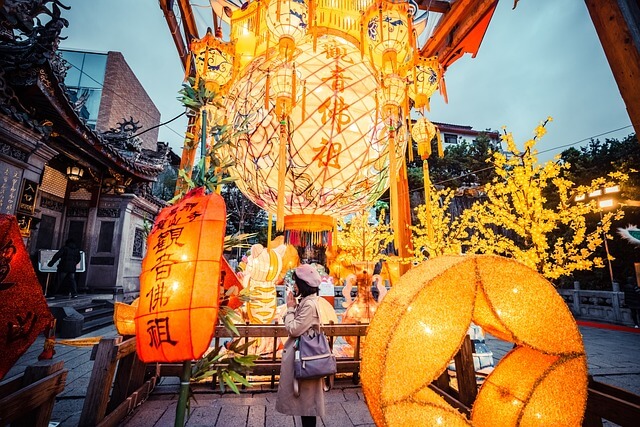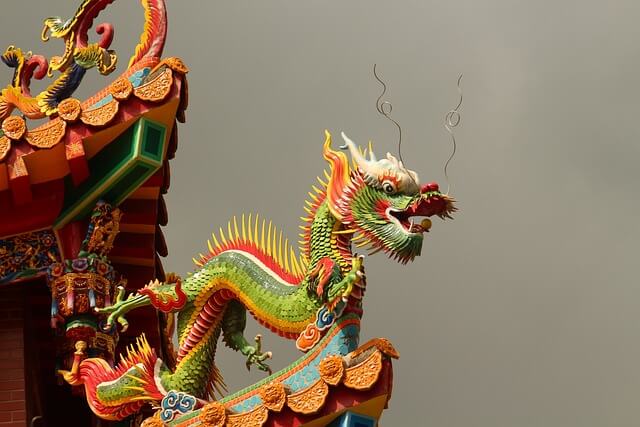
Curious about Dragon Festivals in Asia? You’ve come to the right place! Let’s dive into the captivating world of these festivals, exploring their cultural importance and vibrant traditions.
From personal stories to useful tips, we’ll make sure you leave with a newfound appreciation for these remarkable celebrations.
This guide is designed to answer all your questions, provide a comprehensive overview, and inspire you to experience these incredible events firsthand.
Common Questions About Dragon Festivals in Asia
What are Dragon Festivals?
Dragon Festivals are traditional celebrations held in various parts of Asia to honor dragons, which are often seen as powerful symbols of strength, good fortune, and protection.
These festivals typically involve elaborate dragon dances, boat races, traditional foods, and community gatherings.
Where are the biggest Dragon Festivals celebrated?
The most famous Dragon Festivals are held in China, Japan, Vietnam, and Thailand.
Each country has its unique spin on the festivities, making each experience truly special. Here are a few notable ones:
- China: Dragon Boat Festival
- Japan: Golden Dragon Dance
- Vietnam: Tet Festival
- Thailand: Naga Fireball Festival
Why are dragons so important in Asian culture?
Dragons represent power, prosperity, and protection in many Asian cultures. T
hey’re deeply rooted in mythology and often associated with water, rain, and agricultural success.
Dragons are also seen as benevolent beings that bring good luck and ward off evil spirits.
Discovering the Cultural Significance
Chinese Dragon Boat Festival (Duanwu Festival)
The Dragon Boat Festival, or Duanwu Festival, is one of China’s most significant holidays. Held on the fifth day of the fifth lunar month, it commemorates the ancient poet Qu Yuan.
People race dragon boats and eat zongzi (sticky rice dumplings) to honor his memory.
History and Origins:
Qu Yuan was a loyal minister in the state of Chu during the Warring States period. After being falsely accused of treason, he was exiled. In despair, he drowned himself in the Miluo River.
The local people raced out in their boats to save him or recover his body, beating drums and throwing rice into the water to keep fish and evil spirits away from him. This act of reverence evolved into the Dragon Boat Festival.
Traditions and Activities:
- Dragon Boat Racing: Teams paddle in unison to the beat of drums, symbolizing the efforts to save Qu Yuan.
- Eating Zongzi: Sticky rice dumplings wrapped in bamboo leaves, often filled with dates, beans, or meat.
- Wearing Perfumed Pouches: Believed to ward off evil spirits and disease.
- Hanging Mugwort and Calamus: These plants are hung on doors to repel insects and evil spirits.
Personal Story:
I remember my first Dragon Boat Festival in Hangzhou. The air was filled with the sound of drums as the boats sliced through the water.
Families gathered along the riverbank, cheering and sharing zongzi. It was a beautiful mix of excitement and tradition that I’ll never forget.
Japan’s Golden Dragon Dance
In Tokyo, the Golden Dragon Dance is a highlight of the Sensō-ji Temple festival. This dance symbolizes wealth and prosperity, and the dragon, covered in gold, is paraded through the streets to bring good luck to all.
History and Origins:
The Golden Dragon Dance, or Kinryū-no-Mai, originated in 1958 to commemorate the 1,000th anniversary of the establishment of Sensō-ji Temple.
The dance is based on a legend that a golden dragon appeared from heaven to protect the temple and its followers.
Traditions and Activities:
- Elaborate Costumes: The dragon costume is richly decorated with gold, representing wealth and prosperity.
- Dramatic Dance: The dance involves intricate movements performed by skilled dancers who bring the dragon to life.
- Community Participation: Locals and tourists alike gather to witness and participate in the festivities.
Personal Story:
During my visit to Sensō-ji Temple, I was mesmerized by the Golden Dragon Dance. The elaborate costumes and rhythmic movements of the dancers were hypnotic.
The energy was contagious, and I found myself joining in the celebration with locals and tourists alike.
Vietnam’s Tet Festival
Tet, the Vietnamese New Year, features impressive dragon dances that are believed to drive away evil spirits and bring good luck.
Dragons in these dances are often accompanied by music, acrobatics, and fireworks.
History and Origins:
Tet Nguyen Dan, or Tet, marks the arrival of spring and the start of the lunar new year. It’s the most important holiday in Vietnam, with celebrations lasting several days.
The dragon dance, or múa lân, is a key part of Tet, symbolizing the expulsion of evil spirits and the welcoming of good fortune.
Traditions and Activities:
- Dragon Dances: Performers in dragon costumes dance through the streets, accompanied by drums and cymbals.
- Fireworks: Fireworks displays are a spectacular part of the celebration, believed to ward off evil spirits.
- Family Gatherings: Tet is a time for families to come together, share meals, and honor their ancestors.
- Traditional Foods: Banh Chung (square sticky rice cake) and other festive foods are prepared and enjoyed.
Personal Story:
Celebrating Tet in Ho Chi Minh City was a sensory overload—in the best way. The dragon dances were spectacular, with dancers moving in perfect harmony.
The joy and optimism in the air were palpable, marking the start of a prosperous new year.
Thailand’s Naga Fireball Festival
In Thailand, the Naga Fireball Festival is a unique celebration held along the Mekong River.
It’s believed that the Naga (a mythical serpent) releases glowing fireballs from the river to mark the end of Buddhist Lent.
History and Origins:
The Naga Fireball phenomenon is shrouded in mystery and legend. Locals believe that the Naga, a serpent-like creature, shoots fiery orbs into the air from the riverbed.
This event coincides with the end of the Buddhist Lent, known as Ok Phansa, and is seen as a sign of respect and reverence.
Traditions and Activities:
- Observing the Fireballs: Thousands of people gather along the riverbanks to witness the fireballs rising from the Mekong River.
- Religious Ceremonies: Monks and devotees participate in prayers and rituals to honor the Naga and seek blessings.
- Festive Atmosphere: The event is marked by a carnival-like atmosphere with food stalls, music, and cultural performances.
Personal Story:
Witnessing the Naga Fireball Festival was surreal. Standing by the Mekong River, I watched in awe as glowing orbs rose from the water.
The locals’ reverence for the event was evident, and their stories about the Naga added a mystical layer to the experience.

How to Get Involved
Attend a Festival
Check local tourism websites or cultural centers for dates and details of upcoming Dragon Festivals.
Plan your trip to coincide with one of these vibrant celebrations for an unforgettable experience.
Here are some tips to make the most of your visit:
- Research in Advance: Learn about the festival’s history, traditions, and schedule to fully appreciate the events.
- Respect Local Customs: Be mindful of local customs and traditions. Dress appropriately and participate respectfully.
- Capture Memories: Bring a camera to capture the vibrant colors and joyous moments, but also take time to simply enjoy the experience.
Join a Dragon Boat Team
Many cities worldwide have dragon boat racing clubs. Joining a team is a fantastic way to get a hands-on feel for the tradition and meet new people.
Here’s how you can get started:
- Find a Local Club: Search online or check with local sports organizations to find a dragon boat club near you.
- Attend a Practice: Most clubs welcome newcomers to join a practice session and learn the basics.
- Commit to Training: Dragon boat racing requires teamwork and physical fitness. Regular training will help you improve your skills and enjoy the sport.
Try Traditional Foods
Each festival has its culinary delights. Try making zongzi at home or seek out local restaurants that offer traditional festival foods.
Here are some dishes to look out for:
- Zongzi (China): Sticky rice dumplings filled with meat, beans, or dates, wrapped in bamboo leaves.
- Banh Chung (Vietnam): Square sticky rice cake filled with mung beans and pork, wrapped in banana leaves.
- Festive Street Food (Thailand): Sample a variety of local snacks and dishes at food stalls during the Naga Fireball Festival.
Conclusion
Dragon Festivals in Asia are more than just colorful events—they’re a deep dive into the region’s cultural heart. Whether you’re racing in a dragon boat or watching a mesmerizing dance, these festivals offer a unique way to connect with ancient traditions and vibrant communities.
So pack your bags and get ready to explore the magic of Dragon Festivals!
Frequently Asked Questions
What is the Dragon Boat Festival?
The Dragon Boat Festival, also known as Duanwu Jie, is a traditional Chinese holiday celebrated on the fifth day of the fifth month of the Chinese lunar calendar. It is a significant festival that involves dragon boat races, the consumption of zongzi (rice dumplings), and various rituals to ward off evil spirits and promote good health.
When is the Dragon Boat Festival?
The Dragon Boat Festival typically falls in late May or June on the Gregorian calendar. In 2023, for example, the festival occurred on Thursday, June 22. It is a widely celebrated traditional Chinese festival that is also observed in countries like Malaysia, Taiwan, Singapore, Indonesia, and various parts of the United States.
What are the origins of the Dragon Boat Festival?
The festival’s origins are rooted in various legends and historical events. One popular story revolves around Qu Yuan, an ancient Chinese poet and minister. Another tale involves the death of Wu Zixu and the memory of Cao E, highlighting themes of heroism, loyalty, and sacrifice. These stories contribute to the festival’s rich cultural significance and traditions.
Why are dragon boats significant during the festival?
Dragon boats play a central role in the Dragon Boat Festival, symbolizing different themes such as heroism, warding off evil spirits, and commemorating historical figures like Qu Yuan. The tradition of dragon boat racing has evolved from ancient rituals to a global sport, connecting people worldwide through its cultural roots and competitive spirit.
How is the Dragon Boat Festival celebrated?
The festival is celebrated in various ways, including dragon boat races, the consumption of zongzi, and rituals to honor the Dragon God and other Chinese heroes. People also hang calamus or Chinese mugwort to ward off evil spirits and promote good health. The festival has evolved beyond its traditional roots, becoming an international event that showcases Chinese culture and traditions on a global stage.
Leave a Reply